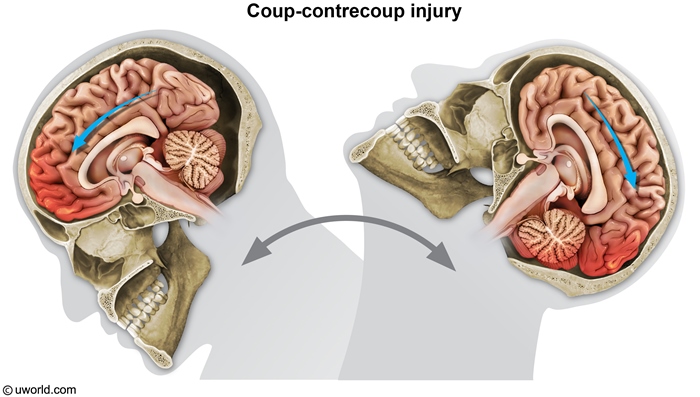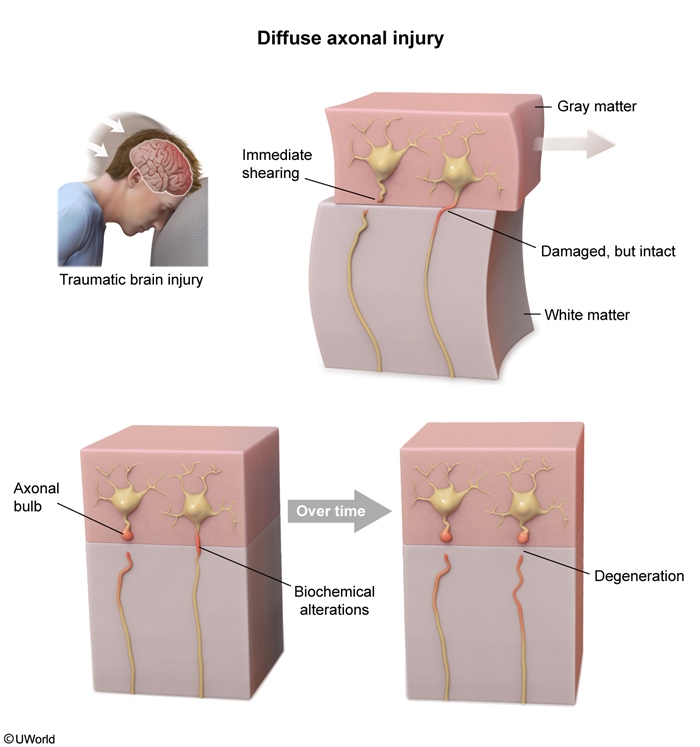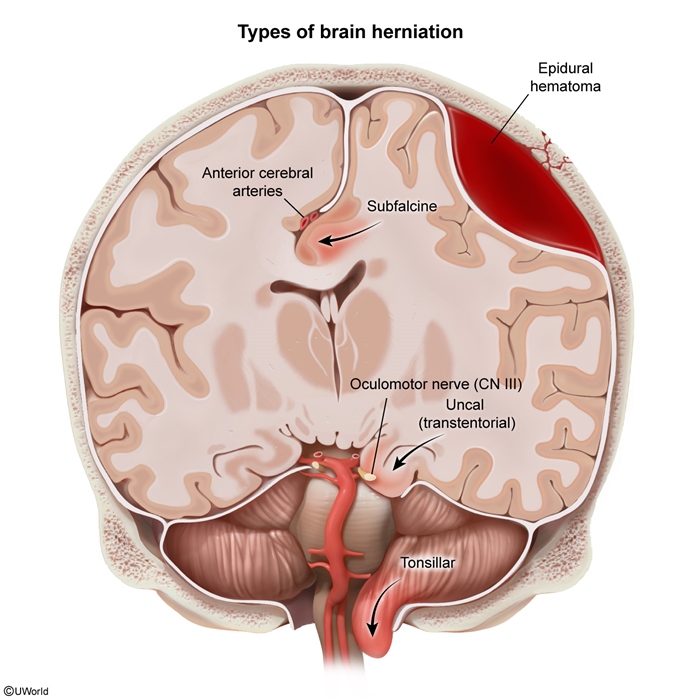Concussion And Traumatic Brain Injury
Article Sections
Introduction
Traumatic brain injury (TBI) is a disruption in brain function caused by an external force, and severity can vary widely. A mild TBI (concussion) is a transient impairment in neurologic function without a structural intracranial injury. Symptoms may include headache, nausea, dizziness, confusion, and/or changes in attention or emotion. Moderate to severe TBI typically involves serious intracranial injuries (eg, intraparenchymal hemorrhage), which lead to depressed mental status, significant neurologic deficits, and an increased risk for permanent disability or death.
Pathogenesis
TBI results from a mechanical force exerted on the brain. Common etiologies include blunt force or penetrating trauma to the head, or acceleration-deceleration injuries, which occur when the brain shifts rapidly against the skull (eg, due to blast/explosion exposure, severe whiplash) (
Continue Learning with UWorld
Get the full Concussion And Traumatic Brain Injury article plus rich visuals, real-world cases, and in-depth insights from medical experts, all available through the UWorld Medical Library.
Unlock Full AccessFigures


